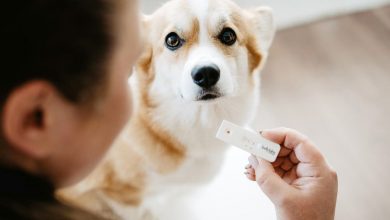What Vaccines Are Required For Dog Grooming

1. Introduction
Dog grooming is an important part of keeping your pet healthy and happy. It is important to know what vaccines are required to ensure that your dog is properly protected while being groomed. In this article, we will discuss the different types of vaccines that are necessary for dog grooming, as well as any potential adverse reactions that may occur. We will also discuss alternatives to dog grooming vaccines.
2. What Vaccines are Required for Dog Grooming?
The type of vaccine required for dog grooming depends on the type of groomer you choose and the region you live in. Generally, most groomers will require the following vaccines: Rabies, Bordetella, Canine Influenza, Leptospirosis, Lyme Disease, and Canine Parvovirus.
3. Rabies Vaccine
The rabies vaccine is a core vaccine that is required by all groomers in order to protect both the pet and the groomer from contracting rabies. This vaccine should be administered at least one month prior to any grooming session and should be kept up to date with regular boosters every three years or as recommended by your veterinarian.
4. Bordetella Vaccine
The Bordetella vaccine is a non-core vaccine that protects against kennel cough and other respiratory illnesses. This vaccine should be given at least two weeks prior to any grooming session and should be kept up to date with regular boosters every six months or as recommended by your veterinarian.
5. Canine Influenza Vaccine
The canine influenza vaccine is a non-core vaccine that protects against canine influenza virus (CIV). This virus can cause severe respiratory illness in dogs and can spread quickly in areas where there are large numbers of dogs, such as doggy daycares and kennels. This vaccine should be given at least two weeks prior to any grooming session and should be kept up to date with regular boosters every six months or as recommended by your veterinarian.
6. Leptospirosis Vaccine
The leptospirosis vaccine is a non-core vaccine that protects against leptospirosis bacteria which can cause kidney damage in dogs if left untreated. This vaccine should be given at least two weeks prior to any grooming session and should be kept up to date with regular boosters every year or as recommended by your veterinarian.
7. Lyme Disease Vaccine
The Lyme disease vaccine is a non-core vaccine that protects against Borrelia burgdorferi bacteria which can cause joint pain, fever, lethargy, and other symptoms if left untreated. This vaccine should be given at least two weeks prior to any grooming session and should be kept up to date with regular boosters every year or as recommended by your veterinarian.
8. Canine Parvovirus Vaccine
The canine parvovirus vaccine is a core vaccine that protects against canine parvovirus which can cause severe vomiting and diarrhea if left untreated. This vaccine should be given at least one month prior to any grooming session and should be kept up to date with regular boosters every three years or as recommended by your veterinarian.
9. Adverse Reactions to Dog Grooming Vaccines
Although rare, there are some potential adverse reactions associated with dog grooming vaccines including swelling, hives, itching, vomiting, diarrhea, fever, and anaphylactic shock in extreme cases. If you notice any of these symptoms after your pet has been vaccinated for dog grooming, it’s important to contact your veterinarian immediately for further evaluation and treatment if necessary.
10. Alternatives to Dog Grooming Vaccines
If you are concerned about potential adverse reactions associated with dog grooming vaccines or if you prefer not to vaccinate your pet for any reason, there are some alternatives available such as using natural flea repellents or giving probiotics before each visit to help boost their immune system naturally so they can fight off any potential infections they may encounter while being groomed. Additionally, some groomers may also offer special services such as bathing only or brushing only so that you don’t have to worry about vaccinations at all!
< h2 > 11 Conclusion < / h2 >
In conclusion, it’s important for pet owners to understand what vaccines are required for dog grooming in order to keep their pets safe from potentially serious illnesses while being groomed. While most groomers will require certain core vaccines such as rabies and canine parvovirus along with additional non-core vaccines such as Bordetella and Canine Influenza depending on the region you live in; there are also some alternatives available such as using natural flea repellents or giving probiotics before each visit if desired so that you don’t have to worry about vaccinations at all!




